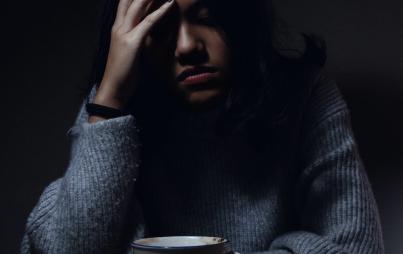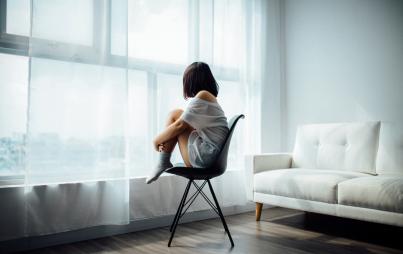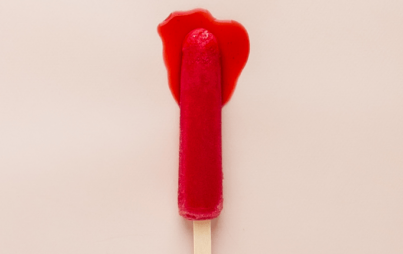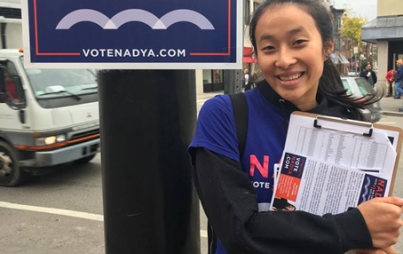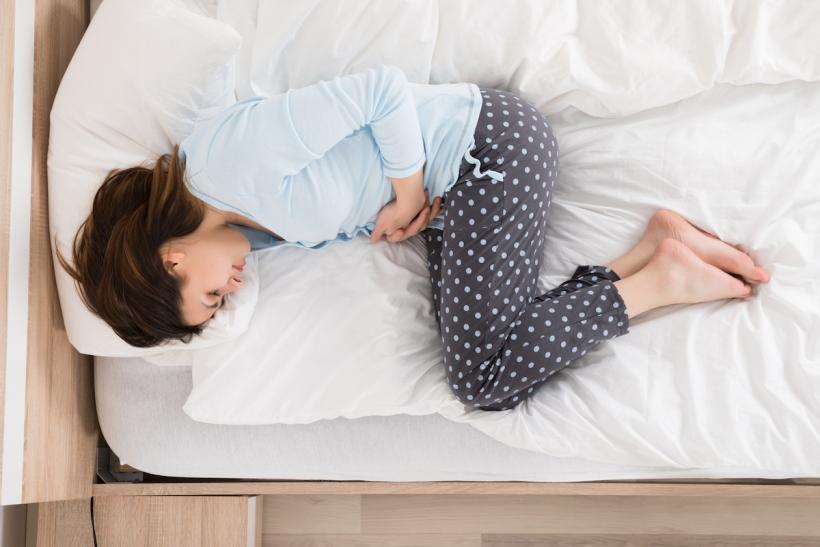
The agony and inconvenience of a monthly cycle isn’t even necessary.
I entered society’s version of womanhood rather late in life. I was almost 14 and a freshman in high school when I noticed the first sign blood while using my aunt and uncle’s bathroom. I snuck my cousin in to whisper the secret and unwrapped the giant maxi pad my mom had given me a few months prior. I looked at the monstrosity with confusion. Was I supposed to unwrap it further? How would it not show when I walked around? How would I be different from my baby sister in diapers? For all my secrecy and confusion, I was ecstatic to finally enter that magical world that had been closed to me for so long.
Then reality set in.
I missed high school one or two days every month like clockwork. In community college, I noticed I fell apart before every period, with intense crying spells and feelings of abandonment. By my mid-20s, I was overdosing on Ibuprofen and calling in sick to work, with periods that lasted up to eight days at a time. Around age 30 I was diagnosed with premenstrual dysphoric disorder (PMDD). While I hated the enormous inconvenience of my condition, I remained ecstatic whenever I menstruated, as if it were a constant reassurance of my womanhood.
Only now, I’ve decided to give up periods entirely.
I felt connected to other women by my cycle, as part of a larger sisterhood. Maybe it’s because strangers sometimes call me “Sir” instead of “Miss,” or because I never developed what I felt to be adequate “birthing hips.” Periods are also a large part of Western pop culture, with Carrie White (Sissy Spacek) acquiring telekinesis after her first period and killing her anti-menstruation mother in the eponymous 1976 film. A few years ago, my then-boyfriend made me the “period mix” showcased in No Strings Attached after I complained of cramps. Adam’s care for Emma during this difficult time made hearts swoon both on- and off-screen, and Emma and her roommates’ synched cycles is a familiar trope (even though some researchers now think the phenomenon isn’t accurate).
A couple of months after presenting me with the period mix, my boyfriend drove me to the grocery store to purchase overnight pads. He walked out with the pads under his arm, his step as suave as ever. I saw it as a positive test of our relationship — that my boyfriend could be so unfazed by something that is often discussed in hushed tones.
As it turns out, however, the agony and inconvenience of a monthly cycle isn’t even necessary. Menstruation is a normal part of many cis-women’s lives, but historically speaking, we were supposed to birth a large number of children, which provides time off from a monthly cycle. I felt cheated when I learned that birth control was first approved by the FDA to treat menstrual disorders, not as a way to regulate pregnancies. Sure, the menstrual disorder route was a way to soften the product, as contraceptives were controversial. But regardless of why the pill came into modern use, the FDA deemed it a successful method for lessening severe menstrual symptoms.
This is important because many women with PMDD and related conditions are not taken seriously by medical professionals and the general public.
Well meaning — and not so well meaning — friends, strangers, and doctors view us as unable to handle our bodies’ natural rhythms. Birth control is seen almost solely as a procreation issue, not as a way to regulate intense hormones.
I’m a long-time birth control user, both when I’m single and in a relationship. With my cycle affecting my ability to make enough money, I recently got my gynecologist to let me skip placebos every two months out of three. For two solid months, I’m able to be productive, see friends and family, and participate in everyday life. But now, that third month is ten times harder. A couple of weeks ago, I laid on my couch and binge-watched Party of Five. My brain was mush, and I likely hadn’t left my house in days. During one episode, the younger sister, Claudia, gets her period for the first time. Her older brother takes her to the store, where she buys pads, and he buys condoms to use with his new girlfriend. I felt cheated, as my period doesn’t lead to boyfriends, husbands, or children. It just repeatedly leads me to the couch.
I’ve developed my own “parties” for my downtimes. For years I watched You’ve Got Mail every month without fail. Once that got old, I began watching Lifetime movies. The corniness is always exactly what I need, and I find myself getting teary over the missing daughter or the bullied teen. But for those hours, days, and even weeks, my company becomes the screen, as I’m relegated to a simple, unburdened life without others. When a fellow 40-year-old texted last week to announce her first pregnancy, I lost it. This burden doesn’t give me some special gift reserved for those with two x chromosomes. All it is is a pain in the ass.
When the gynecologist first recommended skipping just two months out of three, it seemed a good compromise. After all, missing two-thirds of my periods is better than being incapacitated for two weeks every month. But now I want more.
No more debilitating cramps, no more heating pads, and no more spending unnecessary money on pads and tampons.
I’m going to throw my periods in the metaphorical trash, just like I did with my boyfriend’s period mix after we broke up. I don’t need him to carry my package of overnight pads because I don’t need to have overnight pads. I don’t need to be Carrie, Emma, or Claudia. Instead, I can be a menstruation-less woman who isn’t impeded from being part of the hustle and bustle of everyday life, no matter the day of the month.



